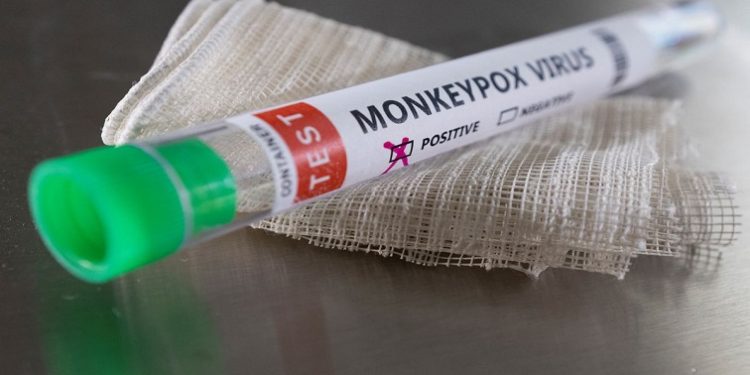The World Health Organization (WHO) is calling for international efforts to contain monkeypox that has spread to 78 countries.
Over 16,000 monkeypox cases have been reported in 78 countries and regions, according to figures released by WHO, which on July 23 declared the monkeypox outbreak a “public health emergency of international concern.”
WHO declares Monkeypox a global health emergency:
Monkeypox is a rare viral disease that is usually transmitted through body fluids, respiratory droplets and other contaminated materials. The disease usually results in fever, rash and swollen lymph nodes.
WHO spokesperson Margaret Harris cited a much greater increased number of monkeypox cases behind this declaration with the hope to raise people’s awareness.
“So in fact, when the director-general declared this public health emergency of international concern, the main reason is actually to get work together to cooperate. And there are different things and different countries that are going to do. For instance, you mentioned in China, there are not any reported cases, so you are falling into Category One, the country we got recommendations for. And that is to get ready, so really prepared your mechanisms for improving this surveillance, and looking to see if you do have cases, and ensure the laboratory has tests, the PCR tests which can test for this, ensure your medical staff and nursing staff are well trained and understand how to deal with these cases and how to recognize these cases, and really this is critical, talk to your communities, help your community to understand, first of all, this is something could be managed, but could be managed best if people can forward and seek medical care,” she said.
Harris said the international community should work together to stop the monekypox outbreak from developing into a global pandemic like COVID-19.
“It’s very different sort of virus from COVID-19. For one thing it’s transmitting by a very very close contact, while COVID-19 is transmitting much more through the air and it’s much likely to happen when you are in crowd of people, in a close environment with poor ventilation. The form of transmission is very different, but we are seeing the cases as I said, in over 78 countries as to date, we see a large number of cases, that is why the director-general declared a public health emergency of international concern, to get the world cooperate now, to stop it turning into a pandemic,” she said.
The spokesperson also gave some suggestions about how to avoid getting infected with the virus as individuals.
“The best way to do is exactly what you are doing right now. To seek information. So learn about it. Learn about what to look for, also don’t panic. Most people are not going to get exposed. Please also be sympathetic, don’t demonize people in the particular group who are currently infected. Because if you demonize people, they stop talking about it, or they don’t seek medical help, or they don’t report cases, and once any virus or any infection goes underground and it’s impossible to track, and you suddenly see the explosion of many many cases,” she said.
WHO declared COVID-19 as a public health emergency of international concern back in January 2020. Other previous public health emergencies of international concern include H1N1 in 2009, Polio and Ebola in 2014, Zika virus in 2016 and Kivu Ebola in 2019.
🚨 BREAKING:
“For all of these reasons, I have decided that the global #monkeypox outbreak represents a public health emergency of international concern.”-@DrTedros pic.twitter.com/qvmYX1ZBAL— World Health Organization (WHO) (@WHO) July 23, 2022


